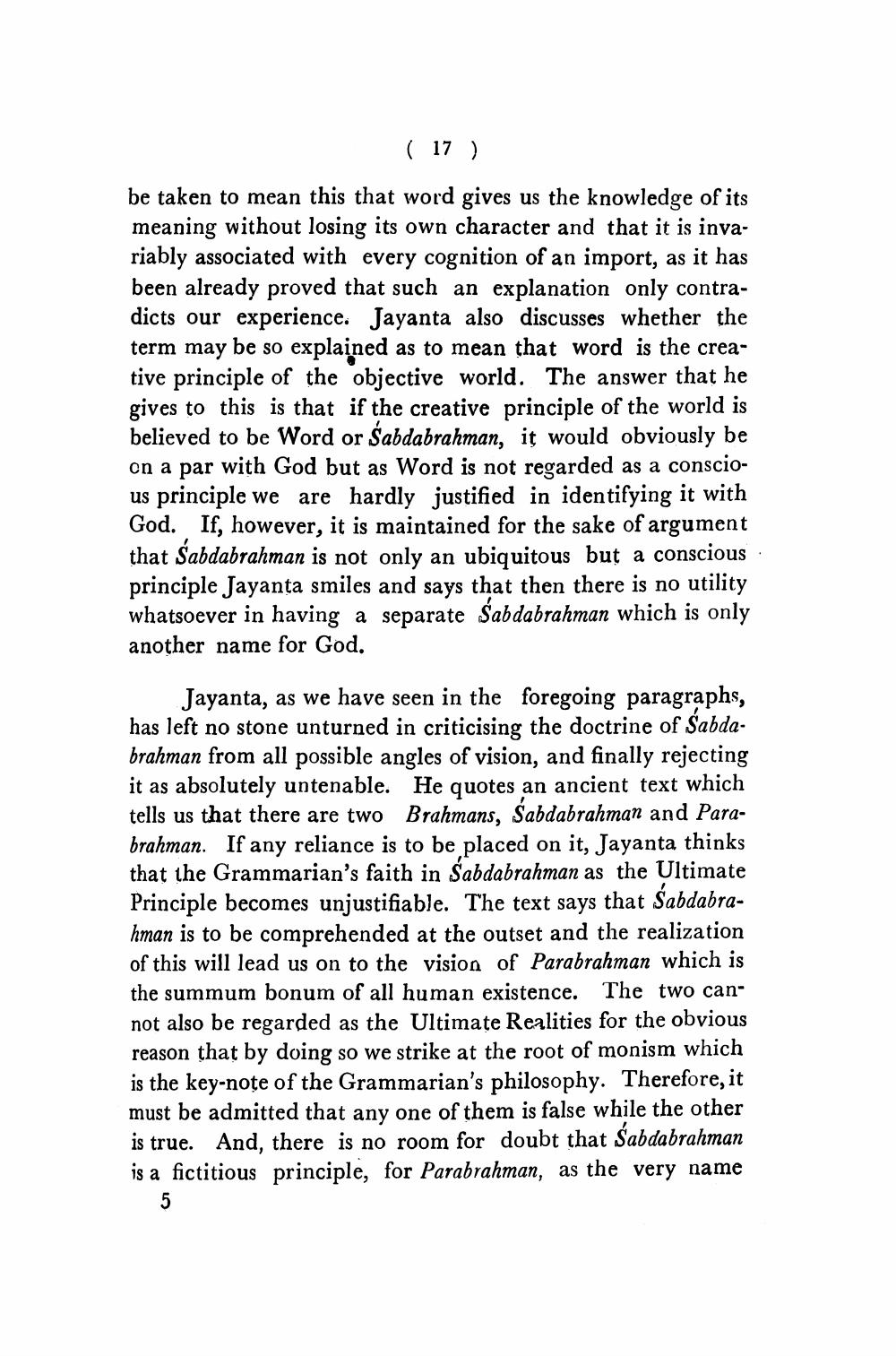________________
(
17
)
be taken to mean this that word gives us the knowledge of its meaning without losing its own character and that it is invariably associated with every cognition of an import, as it has been already proved that such an explanation only contradicts our experience. Jayanta also discusses whether the term may be so explained as to mean that word is the creative principle of the objective world. The answer that he gives to this is that if the creative principle of the world is believed to be Word or Sabdabrahman, it would obviously be on a par with God but as Word is not regarded as a conscious principle we are hardly justified in identifying it with God. If, however, it is maintained for the sake of argument that Sabdabrahman is not only an ubiquitous but a conscious principle Jayanta smiles and says that then there is no utility whatsoever in having a separate Šabdabrahman which is only another name for God.
Jayanta, as we have seen in the foregoing paragraphs, has left no stone unturned in criticising the doctrine of Sabdabrahman from all possible angles of vision, and finally rejecting it as absolutely untenable. He quotes an ancient text which tells us that there are two Brahmans, Sabdabrahman and Parabrahman. If any reliance is to be placed on it, Jayanta thinks that the Grammarian's faith in Sabdabrahman as the Ultimate Principle becomes unjustifiable. The text says that Šabdabrahman is to be comprehended at the outset and the realization of this will lead us on to the vision of Parabrahman which is the summum bonum of all human existence. The two cannot also be regarded as the Ultimate Realities for the obvious reason that by doing so we strike at the root of monism which is the key-note of the Grammarian's philosophy. Therefore, it must be admitted that any one of them is false while the other is true. And, there is no room for doubt that Sabdabrahman is a fictitious principle, for Parabrahman, as the very name




